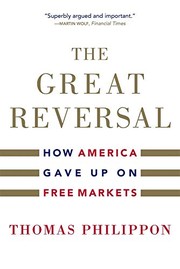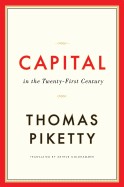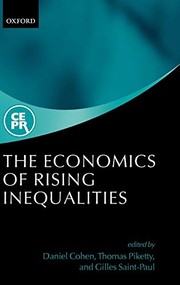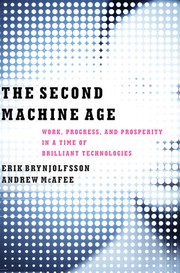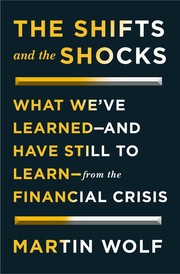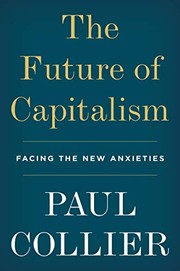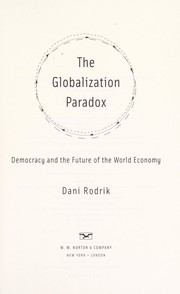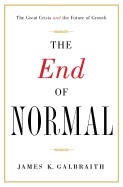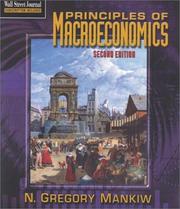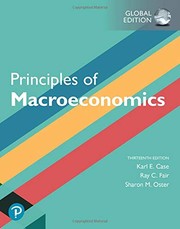Are you intrigued by the complex world of macroeconomics and eager to deepen your understanding of it? Look no further! We’ve curated a list of the 20 best books about macroeconomics that are guaranteed to broaden your knowledge and captivate your intellect. Whether you’re a student, economist, or simply a curious reader, these books offer insightful perspectives on economic theories, policies, and global financial systems. From classics to contemporary works, each book on macroeconomics on this list is a must-read for anyone seeking a comprehensive understanding of the subject. Get ready to embark on an enlightening journey through the fascinating world of macroeconomics with these compelling reads!
Contents
- 1 20 Best Macroeconomics Books
- 2 The Great Reversal: How America Gave Up on Free Markets
- 3 The Deficit Myth: Modern Monetary Theory and the Birth of the People’s Economy
- 4 Capital in the Twenty-First Century
- 5 The Economics of Inequality
- 6 The Age of Stagnation: Why Perpetual Growth Is Unattainable and the Global Economy Is in Peril
- 7 The End of Alchemy: Money, Banking, and the Future of the Global Economy
- 8 The Price of Inequality: How Today’s Divided Society Endangers Our Future
- 9 The Second Machine Age: Work, Progress, and Prosperity in a Time of Brilliant Technologies
- 10 The Rise and Fall of Nations: Forces of Change in the Post-Crisis World
- 11 The Euro: How a Common Currency Threatens the Future of Europe
- 12 The Fourth Industrial Revolution
- 13 The Shifts and the Shocks: What We’ve Learned and Have Still to Learn from the Financial Crisis
- 14 The Future of Capitalism: Facing the New Anxieties
- 15 The Globalization Paradox: Democracy and the Future of the World Economy
- 16 The Wealth of Humans: Work, Power, and Status in the Twenty-first Century
- 17 The End of Normal: The Great Crisis and the Future of Growth
- 18 The New Geography of Jobs
- 19 The Great Escape: Health, Wealth, and the Origins of Inequality
- 20 Macroeconomics
- 21 Principles of Macroeconomics
- 22 Final Thoughts on Best Macroeconomics Books
- 23
20 Best Macroeconomics Books
The Great Reversal: How America Gave Up on Free Markets
by Thomas Philippon
The Great Reversal: How America Gave Up on Free Markets by Thomas Philippon is a thought-provoking book on macroeconomics that delves into the evolution of the American economy over the past century. Philippon, a renowned economist, argues that the United States has shifted away from free market principles, leading to decreased competition, increased inequality, and a decline in economic dynamism.
Using a combination of historical analysis and empirical evidence, Philippon explores how various industries have become more concentrated, stifling innovation and harming consumers. He also examines the role of government policies and regulatory capture in contributing to these trends.
Philippon’s writing is engaging and accessible, making complex economic concepts understandable to a wide audience. Through his meticulous research and compelling arguments, he offers a critical assessment of the state of the American economy and proposes potential solutions to address the issues at hand. Whether you’re an economist or simply interested in understanding the forces shaping the economy, this macroeconomics book provides valuable insights into the challenges facing the United States today.
The Deficit Myth: Modern Monetary Theory and the Birth of the People’s Economy
by Stephanie Kelton
The Deficit Myth: Modern Monetary Theory and the Birth of the People’s Economy by Stephanie Kelton is a groundbreaking book on macroeconomics that challenges conventional wisdom about government deficits and the national debt. Kelton, a leading economist and former advisor to Bernie Sanders, presents Modern Monetary Theory (MMT) as a fresh perspective on the role of money and government spending in the economy.
Using accessible language and real-world examples, Kelton argues that the government’s ability to create money means that deficits are not inherently bad, and that they can be used to achieve important public goals such as full employment, infrastructure investment, and healthcare. She debunks common myths about deficits leading to inflation or burdening future generations, and offers a compelling vision for a more equitable and sustainable economy.
Whether you’re an economist or a newcomer to the field, this macroeconomics book will challenge your assumptions and inspire you to rethink the possibilities for economic policy and social progress.
Capital in the Twenty-First Century
by Thomas Piketty
Capital in the Twenty-First Century by Thomas Piketty is a groundbreaking book on macroeconomics that delves into the dynamics of wealth and income inequality. Piketty meticulously analyzes centuries of economic data to argue that the concentration of capital in the hands of a few will only continue to grow without intervention, leading to social and economic instability. His research shows that the rate of return on capital tends to exceed the rate of economic growth, resulting in the perpetuation of wealth among the already affluent.
Through compelling historical and contemporary examples, Piketty offers a thought-provoking exploration of how wealth and power are distributed in capitalist societies. He also presents policy recommendations to address the growing wealth gap, making a strong case for progressive taxation and global cooperation. This macroeconomics book has sparked widespread debate and influenced policy discussions around the world, making it essential reading for anyone interested in the intersection of economics and social justice.
The Economics of Inequality
by Thomas Piketty
The Economics of Inequality by Thomas Piketty is a thought-provoking book on the study of ‘macroeconomics’ that delves into the roots of economic inequality. Piketty, a renowned economist, examines the evolution of income and wealth distribution over the centuries, presenting compelling data and analysis to support his arguments. He reveals how inequality is not just a result of market forces, but also influenced by social and political factors.
Piketty’s book about ‘macroeconomics’ offers a comprehensive understanding of the dynamics of inequality, highlighting the role of taxation, education, and labor markets in shaping economic disparities. He also discusses the potential consequences of growing inequality on social stability and economic growth, making a strong case for policy interventions to address these issues.
Overall, The Economics of Inequality is a must-read for anyone interested in understanding the complexities of economic inequality and its implications for society. Piketty’s insightful analysis and accessible writing style make this ‘macroeconomics book’ a valuable resource for students, policymakers, and anyone concerned about the future of our economies.
The Age of Stagnation: Why Perpetual Growth Is Unattainable and the Global Economy Is in Peril
by Satyajit Das
The Age of Stagnation: Why Perpetual Growth Is Unattainable and the Global Economy Is in Peril by Satyajit Das is a thought-provoking book about macroeconomics that challenges the widely held belief in perpetual economic growth. Das argues that the global economy is facing serious challenges that make sustained growth difficult to achieve. Drawing on his extensive experience in finance and economics, he explores the various factors contributing to this stagnation, including demographic shifts, rising debt levels, and technological limitations.
Das presents a compelling case for why traditional economic policies and models may no longer be effective in addressing the current state of the global economy. He also offers insights into the potential consequences of continued stagnation, such as social and political unrest, and provides recommendations for navigating these challenges.
This macroeconomics book will appeal to readers interested in gaining a deeper understanding of the complex forces shaping the global economy and the potential implications for the future. Das’s engaging writing style and thorough analysis make this book a must-read for anyone concerned about the state of the world economy.
The End of Alchemy: Money, Banking, and the Future of the Global Economy
by Mervyn King
The End of Alchemy by Mervyn King is a thought-provoking book on macroeconomics that offers a comprehensive analysis of the global financial system. King, a former governor of the Bank of England, delves into the intricacies of money, banking, and the challenges facing the global economy. He argues that the traditional alchemy of the banking sector, which involves creating money out of thin air, is no longer sustainable and needs to be reformed.
King provides a historical perspective on the evolution of the financial system, drawing on his extensive experience in central banking. He discusses the impact of financial crises and the role of central banks in stabilizing the economy. The book also offers insightful solutions for transforming the financial system to prevent future crises and promote sustainable economic growth.
Overall, The End of Alchemy is a compelling macroeconomics book that sheds light on the complexities of the global financial system and offers valuable insights for policymakers, economists, and anyone interested in understanding the future of the economy.
The Price of Inequality: How Today’s Divided Society Endangers Our Future
by Joseph E. Stiglitz
The Price of Inequality: How Today’s Divided Society Endangers Our Future by Joseph E. Stiglitz is a thought-provoking book on macroeconomics that delves into the consequences of income inequality in modern societies. Stiglitz, a Nobel Prize-winning economist, provides a comprehensive analysis of the economic, political, and social implications of inequality, offering compelling insights into the ways in which it undermines the foundation of a prosperous and stable society.
Stiglitz skillfully combines economic theory, empirical evidence, and real-world examples to demonstrate how inequality hampers economic growth, distorts public policy, and erodes social cohesion. He argues that the growing gap between the rich and the poor not only undermines the principles of fairness and justice but also poses a serious threat to the future well-being of individuals and the overall economy.
With its accessible language and compelling arguments, The Price of Inequality is a must-read for anyone interested in understanding the complex dynamics of modern economies and the impact of inequality on society as a whole.
The Second Machine Age: Work, Progress, and Prosperity in a Time of Brilliant Technologies
by Erik Brynjolfsson and Andrew McAfee
The Second Machine Age, written by Erik Brynjolfsson and Andrew McAfee, is a groundbreaking book on macroeconomics that explores the impact of digital technology on the economy and society. The authors argue that we are living in a time of unprecedented technological progress, with innovations like artificial intelligence and automation revolutionizing the way we work and live.
Brynjolfsson and McAfee discuss how these advancements are leading to a new era of prosperity, but also creating significant challenges, such as income inequality and job displacement. They provide insights into how individuals, businesses, and governments can adapt to this new reality and harness the potential of digital technologies to create a more inclusive and prosperous society.
This thought-provoking book about macroeconomics is filled with real-world examples and compelling data, making it a must-read for anyone interested in understanding the profound impact of technology on the economy and the future of work.
The Rise and Fall of Nations: Forces of Change in the Post-Crisis World
by Ruchir Sharma
The Rise and Fall of Nations: Forces of Change in the Post-Crisis World by Ruchir Sharma is a compelling book on macroeconomics that delves into the dynamics of global economies. Sharma, a renowned global investor, provides a fascinating overview of the factors that drive the rise and fall of nations in the modern world.
Through insightful analysis and engaging storytelling, Sharma explores the key drivers of economic growth and decline, from demographics and politics to technology and globalization. He offers valuable insights into the unique forces shaping different countries and provides a framework for understanding the complex interplay of factors that determine a nation’s economic trajectory.
With a keen eye for detail and a deep understanding of global markets, Sharma’s macroeconomics book offers a fresh perspective on the ever-changing landscape of the world economy. Whether you’re an economist, investor, or simply curious about the forces that shape our world, The Rise and Fall of Nations is a must-read that will challenge your assumptions and expand your understanding of global economics.
The Euro: How a Common Currency Threatens the Future of Europe
by Joseph E. Stiglitz
The Euro: How a Common Currency Threatens the Future of Europe by Joseph E. Stiglitz is a thought-provoking book on macroeconomics that challenges the notion that the euro has been beneficial for Europe. Stiglitz, a Nobel Prize-winning economist, argues that the creation of the euro has caused more harm than good, leading to economic stagnation, inequality, and political tensions within the European Union.
Using a combination of economic analysis and political insight, Stiglitz delves into the complexities of the euro’s impact on European countries, shedding light on the flaws in its design and implementation. He also offers alternative solutions for the future of the eurozone, providing a compelling and controversial perspective on the issue.
With his accessible writing style and depth of knowledge, Stiglitz presents a compelling case for reevaluating the euro and its role in Europe’s economic future. Whether you’re a student, economist, or simply interested in the current state of the European economy, this macroeconomics book will undoubtedly challenge your preconceptions and stimulate critical thinking about the future of the euro.
The Fourth Industrial Revolution
by Klaus Schwab
The Fourth Industrial Revolution by Klaus Schwab is a groundbreaking book on macroeconomics that explores the transformative impact of new technologies on the global economy. Schwab, the founder and executive chairman of the World Economic Forum, delves into the ways in which emerging technologies such as artificial intelligence, robotics, and the Internet of Things are reshaping industries, labor markets, and society as a whole.
This book about macroeconomics presents a compelling vision of the future, highlighting the potential for increased productivity, efficiency, and innovation, but also addressing the challenges and disruptions that may arise. Schwab offers insights into how individuals, businesses, and governments can navigate this new era of technological advancement to ensure inclusive growth and sustainable development.
With its thought-provoking analysis and forward-thinking perspective, The Fourth Industrial Revolution is a must-read for anyone interested in the intersection of technology, economics, and society, making it an essential macroeconomics book for the modern age.
The Shifts and the Shocks: What We’ve Learned and Have Still to Learn from the Financial Crisis
by Martin Wolf
The Shifts and the Shocks: What We’ve Learned and Have Still to Learn from the Financial Crisis, by Martin Wolf, is a compelling book on macroeconomics that delves into the causes and aftermath of the 2008 global financial crisis. Wolf, a renowned economist and journalist, offers a comprehensive analysis of the complex factors that led to the crisis, as well as the subsequent policy responses and their implications for the global economy.
With his insightful commentary and lucid explanations, Wolf provides readers with a deeper understanding of the interconnectedness of the global financial system and the challenges facing policymakers in the wake of the crisis. The book offers valuable lessons and warnings for the future, making it an essential read for anyone interested in understanding the intricacies of the modern financial system and the ongoing debates in macroeconomics.
Whether you are an economist, student, or simply a curious reader, The Shifts and the Shocks is a thought-provoking macroeconomics book that sheds light on the complexities of the global economy and the lessons we can learn from past financial crises.
The Future of Capitalism: Facing the New Anxieties
by Paul Collier
The Future of Capitalism: Facing the New Anxieties by Paul Collier is a thought-provoking book on macroeconomics that delves into the challenges and anxieties facing capitalism in the modern world. Collier, a renowned economist, explores the underlying reasons for the rise of populism and the growing discontent with capitalism, offering insightful analysis and potential solutions.
Through a combination of economic theory, real-world examples, and engaging storytelling, Collier presents a compelling argument for reevaluating the current economic system and addressing the widening inequalities and social divisions. He emphasizes the importance of creating a more inclusive and sustainable capitalism that benefits the wider society.
This macroeconomics book is essential reading for anyone interested in understanding the complex interplay between economics, politics, and society. Collier’s accessible writing style makes this book about macroeconomics accessible to a wide audience, from students and academics to policymakers and general readers seeking a deeper understanding of the challenges and opportunities facing modern capitalism.
The Globalization Paradox: Democracy and the Future of the World Economy
by Dani Rodrik
The Globalization Paradox: Democracy and the Future of the World Economy by Dani Rodrik is a thought-provoking book on macroeconomics that challenges the conventional wisdom on the relationship between democracy and economic globalization. Rodrik argues that the tension between economic integration and national sovereignty is a paradox that cannot be easily resolved. He contends that while globalization brings benefits such as economic growth and efficiency, it also poses significant challenges for democratic governance and social stability.
Rodrik suggests that policymakers face a difficult trade-off between the economic benefits of globalization and the need to maintain democratic control over national policies. He provides a nuanced analysis of how countries can navigate this paradox and proposes alternative approaches to managing the tensions between globalization and democracy. With its compelling arguments and accessible writing style, The Globalization Paradox is a must-read for anyone interested in understanding the complex dynamics of the global economy and the role of democracy in shaping its future.
The Wealth of Humans: Work, Power, and Status in the Twenty-first Century
by Ryan Avent
The Wealth of Humans by Ryan Avent is a thought-provoking book on macroeconomics that delves into the impact of technological advancements on the labor market, power dynamics, and social status in the 21st century. Avent explores how automation, artificial intelligence, and globalization are reshaping the way we work and the distribution of wealth and power.
Through insightful analysis and engaging storytelling, Avent presents a compelling argument about the challenges and opportunities brought about by these transformations. He discusses the potential for widespread job displacement, the rise of the gig economy, and the widening income inequality, while also offering a hopeful perspective on the possibilities for a more inclusive and prosperous future.
With a keen understanding of macroeconomics and its intersection with technology and society, Avent provides readers with a comprehensive and accessible exploration of the complex economic forces at play in our rapidly evolving world. This macroeconomics book is a must-read for anyone interested in understanding the future of work, power dynamics, and social status in the digital age.
The End of Normal: The Great Crisis and the Future of Growth
by James K. Galbraith
The End of Normal: The Great Crisis and the Future of Growth by James K. Galbraith is a thought-provoking book on macroeconomics that challenges traditional economic theories and offers a compelling analysis of the global financial crisis. Galbraith, a renowned economist, argues that the period of stable growth and economic stability that many have come to see as ‘normal’ is coming to an end. He delves into the underlying causes of the crisis and provides a fresh perspective on the future of economic growth.
Through a combination of historical analysis and contemporary economic trends, Galbraith paints a vivid picture of the shifting landscape of the global economy. He offers insights into the consequences of the crisis and what it means for the future of capitalism and economic policy. This macroeconomics book is a must-read for anyone seeking a deeper understanding of the complexities of the modern economy and the challenges that lie ahead.
The New Geography of Jobs
by Enrico Moretti
The New Geography of Jobs by Enrico Moretti is a groundbreaking book about macroeconomics that explores the shifting dynamics of the job market in the United States. Moretti delves into the impact of innovation and technological advancement on the distribution of jobs across different cities and regions, ultimately reshaping the economic landscape of the country.
Through compelling data and analysis, Moretti demonstrates how certain cities have emerged as hubs for innovation and high-paying jobs, while others have struggled to keep up. He also highlights the consequences of this geographical divide, shedding light on the widening income inequality and the challenges faced by workers in less prosperous areas.
Moretti’s insightful examination of this macroeconomics book offers valuable insights for policymakers, economists, and anyone interested in understanding the complex interplay between technology, labor markets, and regional disparities. With its engaging prose and thought-provoking ideas, The New Geography of Jobs is a must-read for anyone seeking to grasp the changing dynamics of the modern economy.
The Great Escape: Health, Wealth, and the Origins of Inequality
by Angus Deaton
The Great Escape: Health, Wealth, and the Origins of Inequality by Angus Deaton is a captivating book about macroeconomics that delves into the complex interplay of health, wealth, and inequality. Deaton, a Nobel Prize-winning economist, explores the fascinating history of economic progress and the forces that have shaped our modern world.
Through a compelling narrative, Deaton examines the profound impact of economic growth on global health and well-being, highlighting the remarkable strides that have been made in improving living standards and life expectancy. At the same time, he uncovers the persistent inequalities that persist and the challenges that still confront many societies.
This macroeconomics book offers a thought-provoking analysis of the dynamics of inequality, shedding light on the factors that have contributed to diverging fortunes across different regions and populations. Deaton’s insightful exploration of these issues provides valuable insights for anyone seeking to understand the complex relationship between economics, health, and inequality in our world.
Macroeconomics
by N. Gregory Mankiw
Macroeconomics by N. Gregory Mankiw is a renowned book on macroeconomics that provides a clear and comprehensive overview of the field. Mankiw’s writing style is engaging and accessible, making complex economic concepts easy to understand for readers of all levels of expertise. The book covers a wide range of macroeconomic topics, including economic growth, unemployment, inflation, and fiscal and monetary policy.
One of the key strengths of this macroeconomics book is its real-world examples and applications, which help readers to see how macroeconomic principles play out in the global economy. Mankiw also incorporates recent economic events and developments, keeping the content relevant and up-to-date.
Whether you are a student studying economics for the first time or an experienced economist looking to refresh your knowledge, this book about macroeconomics is a valuable resource that will deepen your understanding of the subject.
Principles of Macroeconomics
by Karl E. Case, Ray C. Fair, Sharon E. Oster
Are you looking for a comprehensive book on macroeconomics that will help you understand the complexities of the economy? Look no further than Principles of Macroeconomics by Karl E. Case, Ray C. Fair, and Sharon E. Oster. This book offers a thorough exploration of the principles and theories that govern the behavior of the economy as a whole.
Through clear explanations and real-world examples, the authors delve into topics such as inflation, unemployment, economic growth, and monetary and fiscal policy. Whether you’re a student seeking a solid foundation in macroeconomics or a curious reader wanting to grasp the dynamics of the economy, this macroeconomics book is an invaluable resource.
With its engaging writing style and relevant case studies, Principles of Macroeconomics provides a compelling and accessible introduction to the subject. By the end of this book, you’ll have a deeper understanding of how economic forces shape our world, making it a must-read for anyone interested in the intricacies of the economy.
Final Thoughts on Best Macroeconomics Books
Exploring the complex world of Macroeconomics through literature can be both enlightening and enriching. The 20 best books about macroeconomics provide valuable insights into the global economy, offering diverse perspectives and in-depth analysis. Whether you’re a student, economist, or simply curious about the subject, these books offer a comprehensive understanding of macroeconomic concepts and their real-world implications. Delve into these essential reads to broaden your knowledge and deepen your appreciation for the intricate workings of the economy.
Which book about Macroeconomics is best?
The best book on Macroeconomics can vary with personal preference, but three widely recommended titles are:
- The Great Reversal: How America Gave Up on Free Markets by Thomas Philippon,
- The Deficit Myth: Modern Monetary Theory and the Birth of the People’s Economy by Stephanie Kelton,
- Capital in the Twenty-First Century by Thomas Piketty.
Each offers valuable insights and could be a great starting point.
What are the best books to learn about Macroeconomics?
For those looking to learn about Macroeconomics, there is a wealth of literature that can provide a comprehensive understanding of the subject. Some of the most highly recommended books include:
- The Great Reversal: How America Gave Up on Free Markets by Thomas Philippon,
- The Deficit Myth: Modern Monetary Theory and the Birth of the People’s Economy by Stephanie Kelton,
- Capital in the Twenty-First Century by Thomas Piketty,
- The Economics of Inequality by Thomas Piketty,
- The Age of Stagnation: Why Perpetual Growth Is Unattainable and the Global Economy Is in Peril by Satyajit Das,
- The End of Alchemy: Money, Banking, and the Future of the Global Economy by Mervyn King,
- The Price of Inequality: How Today’s Divided Society Endangers Our Future by Joseph E. Stiglitz,
- The Second Machine Age: Work, Progress, and Prosperity in a Time of Brilliant Technologies by Erik Brynjolfsson and Andrew McAfee,
- The Rise and Fall of Nations: Forces of Change in the Post-Crisis World by Ruchir Sharma,
- The Euro: How a Common Currency Threatens the Future of Europe by Joseph E. Stiglitz
These books offer a range of perspectives on Macroeconomics, covering various aspects and approaches to the subject.
What are the best books about Macroeconomics?
The best books about Macroeconomics are:
- The Great Reversal: How America Gave Up on Free Markets by Thomas Philippon,
- The Deficit Myth: Modern Monetary Theory and the Birth of the People’s Economy by Stephanie Kelton,
- The Fourth Industrial Revolution by Klaus Schwab,
- The Shifts and the Shocks: What We’ve Learned and Have Still to Learn from the Financial Crisis by Martin Wolf,
- The Second Machine Age: Work, Progress, and Prosperity in a Time of Brilliant Technologies by Erik Brynjolfsson and Andrew McAfee,
- The End of Alchemy: Money, Banking, and the Future of the Global Economy by Mervyn King.
Each offers unique insights into the subject. While these books about Macroeconomics are highly regarded, it’s important to note that any list of ‘best’ books is subjective and reflects a range of opinions.
What are the best Macroeconomics books of all time?
Choosing the best Macroeconomics books of all time can vary depending on who you ask, but five titles that are often celebrated include
- The Great Reversal: How America Gave Up on Free Markets by Thomas Philippon,
- The Deficit Myth: Modern Monetary Theory and the Birth of the People’s Economy by Stephanie Kelton,
- The Age of Stagnation: Why Perpetual Growth Is Unattainable and the Global Economy Is in Peril by Satyajit Das,
- The Second Machine Age: Work, Progress, and Prosperity in a Time of Brilliant Technologies by Erik Brynjolfsson and Andrew McAfee,
- and The Fourth Industrial Revolution by Klaus Schwab.
Each of these books has made a significant impact in the field of Macroeconomics and continues to be influential today.

